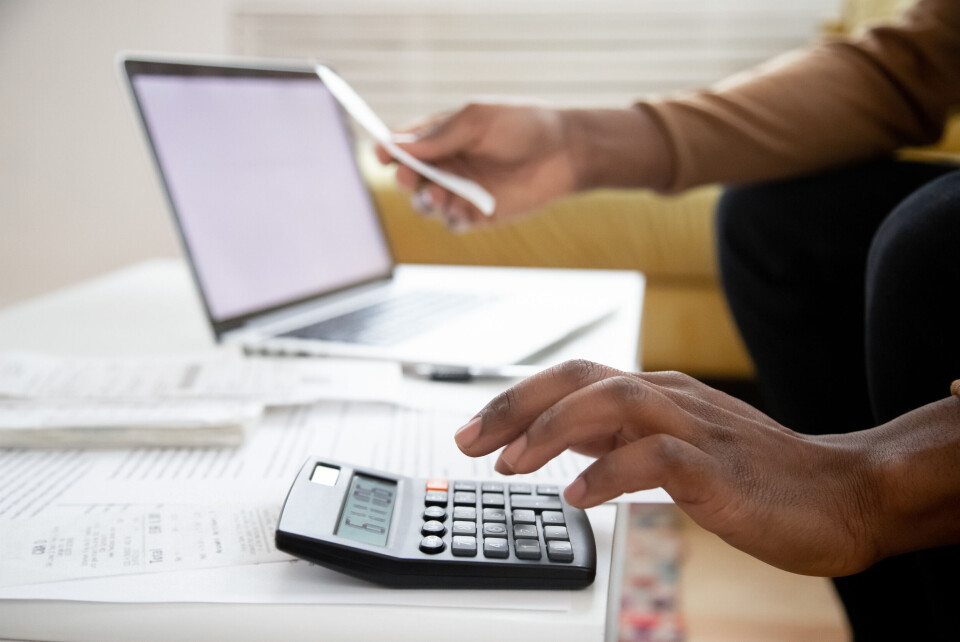-
Mysterious boom rattles residents in south-west France
Local community turns to social media for answers
-
France tightens reimbursement rules for flight delays or cancellations
New measures include mandatory mediation and new claim procedures
-
What snow conditions look like for skiers across French Alps and Pyrenees
Ski resorts are expected to get busier as school holidays begin this weekend
Basic living expenses cost €1,059 per month in France, study finds
Bills and rent make up 70% of spending in lower income households a new study has revealed. We share tips for saving money on household expenses

Spending on household expenses cost an average of €1,059 per month in 2021 compared with €1,061 in 2020 a new study has found.
The study, by CSA Research and website lesfurets.com published in Le Parisien, found that 70% of spending in poorer households in France (with an income of less than €900 per month) went on expenses such as rent or mortgage payments, bills for water, electricity and gas, insurance payments and telephone and internet bills.
Rent and mortgage payments were the biggest expense for households at an average of €656 per month.
This was followed by transport costs at €198, including an average of €108 spent on fuel increasing from €96 in 2020.
For average-income households (For a couple where both work, the average income is between €3000 - €3500) basic living expenses accounted for approximately 40% of their monthly total spending, varying slightly according to their living conditions.
For example, a couple with two children with an average income spent around 40% (equivalent to €1,466 per month) on basic living expenses, but this fell to 22% (€1,647) for higher income couples with two children.
However, among the lowest income households, basic living expenses could reach a high of 68% of their total spending (€896).
Among retirees, many of whom have finished making mortgage payments, spending on household expenses was around 26%.
Five tips for saving money on living expenses
Reassess your spending
Taking time to reassess your budget should be a regular part of your financial routine. In doing so you might find that you are subscribed to services you no longer need or use, or that you are paying higher than average for some services.
It can be a good idea to divide spending into three categories: essential, average and unimportant.
Then, rethink any spending in the unimportant category – are these things you could cut out altogether?
Make it harder to impulse buy
Today it is easy to make online purchases in a few clicks, without even having to enter your bank card details.
However, deleting your card details from your favourite shopping sites can help you think twice before you make purchases.
The extra time you spend finding your bank card and entering the details when you want to make a purchase gives you a few minutes to think about the payment you are about to make, and if you really want to go through with it.
Deleting shopping apps from your phone can also help with this.
Save little by little for big purchases
Instead of going into debt or using long-term payment plans, try saving a small amount over time for more expensive products.
You could do this by setting up a savings space with your online banking or by physically saving coins in a jar, for example.
Not only will you build up a fund of spending money, but the time it takes you to save will help you reflect on whether you really need the product you plan to buy.
You might find that overtime you do not want or need it as much as you thought.
On the other hand, if you still want the product after you have saved enough money, you’ll be able to buy it without going into debt.
Borrow instead of buying
How much money might you save by joining the library instead of buying a new book every time you want to read one?
The same logic can be applied to all kinds of products – you can save money on DIY tools, clothes and all sorts of other items that you might only want to use once or twice if you can borrow them rather than buying.
When you need or want a product that you know you will only need to use in a limited way, ask around among friends, family members and neighbours.
Or look online, there may be groups in your area for swapping and sharing products among locals.
Take a spending break
One way to save money is to stop spending it. This might sound obvious, but setting yourself a challenge like stopping spending on everything but essentials for one month can help you save money, but also reassess your spending in general.
You might find at the end of the month that the feeling of having money saved is something you want to continue the following month.
Or you might find that when you cut yourself off from all non-essential spending as a hobby, you find other things to fill you time.
If cutting all non-essential spending sounds extreme, try breaking one habit. For example, you might decide to stop buying take away food for a month or to not buy any new clothes.
Whatever you choose, take time to reflect at the end of the month and to choose for yourself how you want to manage your spending looking to the future.
Related stories
How to save money on your energy bills in France this winter
Which supermarkets in France have the most offers, deals and promos?
75% of people polled in France feel their spending power has dropped
























